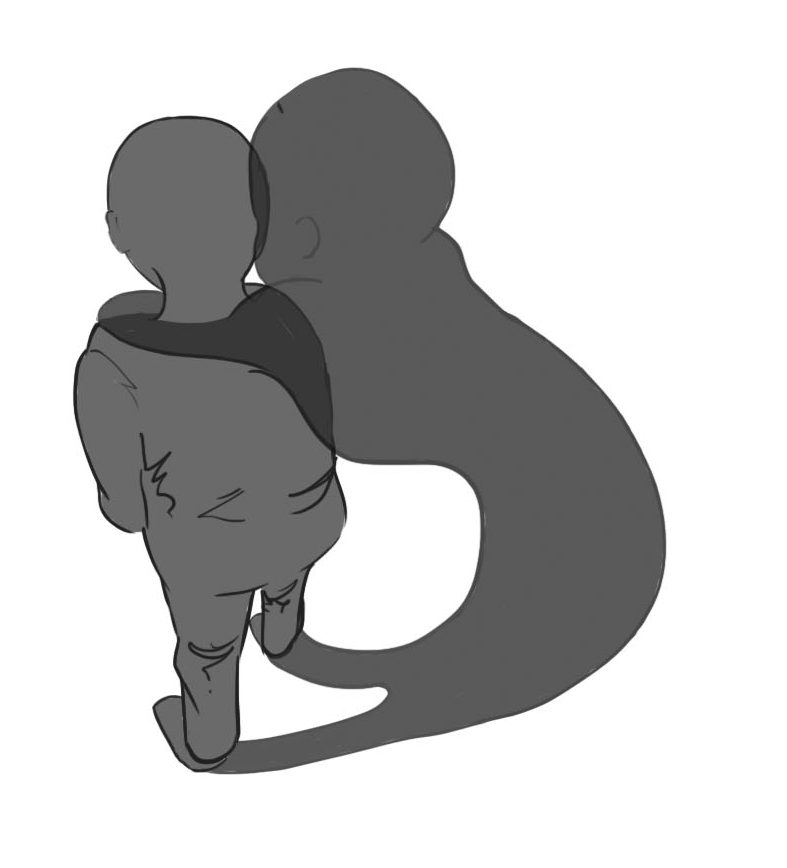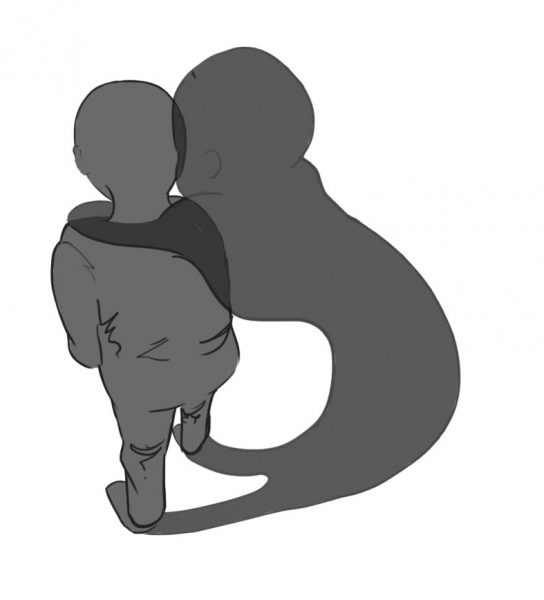

The daily weight of the shadow takes a toll on me even though the symptoms of anxiety may not always be prevalent. Some days, I can dismiss the nagging shadow and continue. Other times, anxiety knocks the wind out of my chest and gags me with illogical fears.
In moderation, anxiety is healthy. Anxiety triggers a fight or flight reaction, which in the situation where you are face-to-face with a bear, you are prepared to run or fight for self-preservation.
However, for me, an excess of anxiety causes stomach aches, shakiness, heart palpitations and occasionally an overwhelming urge to run away from tests, even though I am fully aware that they will not put me in mortal danger.
There are times when my anxiety shuts down my brain, and I can’t think or speak in confrontational situations. I need to walk away, even though I know doing so won’t solve anything.
Having panic attacks feels like what I imagine having a heart attack would feel like. My heart seemingly beats out of my chest, I feel nauseous, my chest tightens, my thoughts race and scramble.
Never tell someone with anxiety to “Get over it” or that “It’s all in your head,” because the pain and overwhelming fear crowding their brain is legitimate. That is an anxious person’s reality, and we are painfully aware of that.
Before I self-diagnosed myself with anxiety in eighth grade, I thought that the panic attacks were a heart condition. However, when I googled the symptoms — like a typical anxious hypochondriac — one of the first results was “Anxiety Disorder.” For about two years, I read article after article about anxiety, believing that I could control my illness on my own. However, my symptoms got exponentially worse.
I eventually decided to see a real-life psychologist rather than the digital one I was consulting, and I was able to develop coping mechanisms, and I also found a safe place to talk about mental illness where I feel comfortable. Though my anxiety will never go away, these methods have allowed me to manage and regain control.
Truthfully, I know that my anxieties are irrational a majority of the time. I’m aware that tests, confrontation and emotional vulnerability do not put me in mortal peril, yet no matter how much I wish I could, I cannot simply pause the fear. I’ve experienced the power of my brain in the anxiety that affects not only my mental health, but also my physical health. That being said, having a mental illness has taught me patience, resilience, compassion and responsibility for myself and my own well-being along with the well-beings of others.




